Know Your Place #4
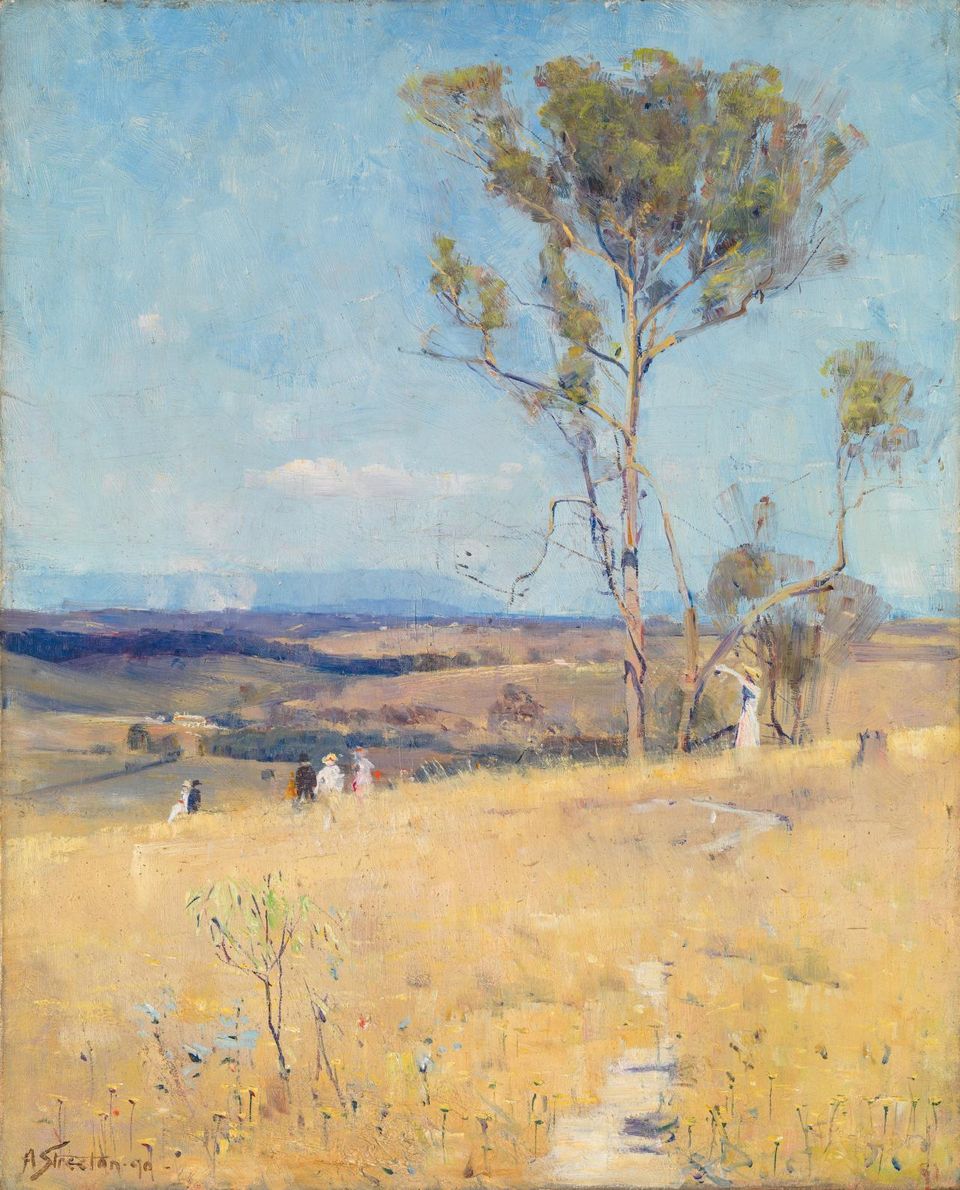
Eaglemont - within the broader and earlier named Heidelberg - has long been a favourite place for landscape artists.
We are all familiar with the exploits and artistic works of the Heidelberg School of Artists.
Lesser known are the other artists who painted landscapes of our area, even before the Big 5 of Streeton, Roberts, McCubbin, Withers and Condor.
Eugene von Guerard for one.
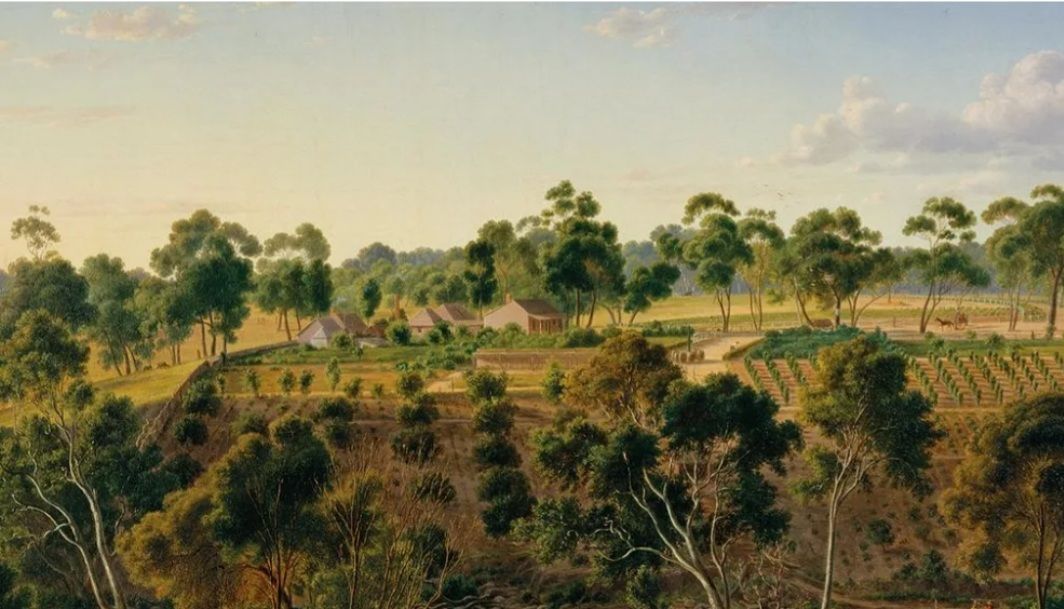
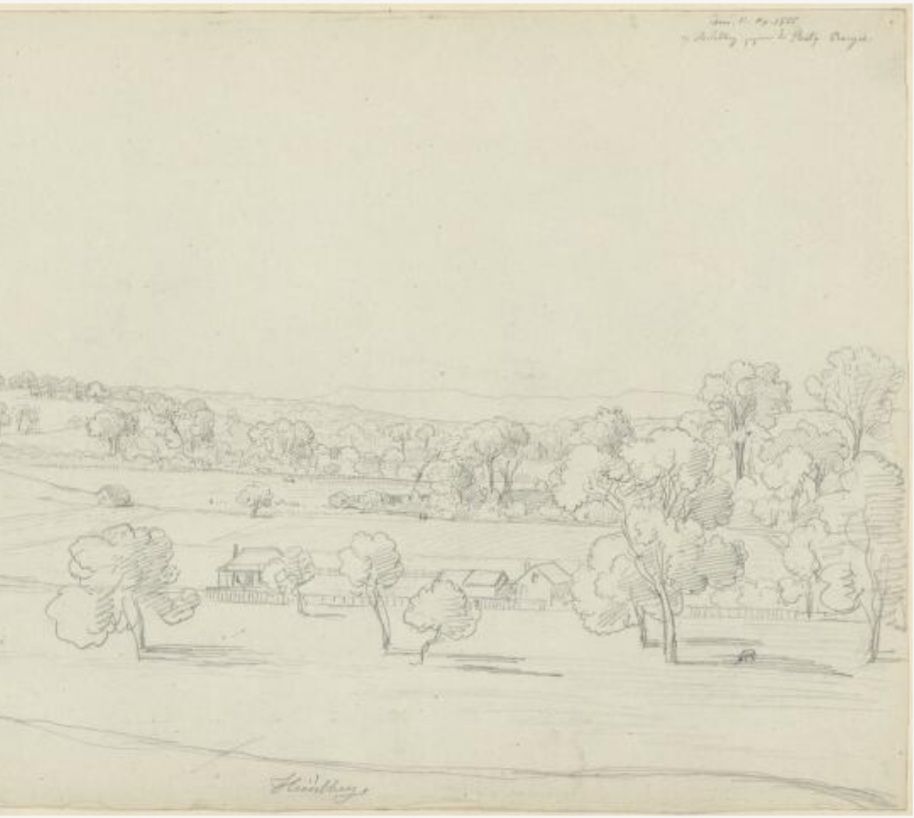
The Argus, 17.11.1934, Page 6
HEIDELBERG AND ITS ARTISTS
HOW THEY FIRST ARRIVED
By H. F. BRENNAN
It has been said that the land is blessed that has no history. Heidelberg is probably the most blessed of all the suburbs of Melbourne; and it has the most interesting history. Some-indeed much-of that history has been made by artists, selections from whose work are now on view at the Ivanhoe Hall, Ivanhoe.
There is in existence an artistic card, addressed to Miss Louisa Stokes, the pleasure of whose company on Cup Day, 1897, was sought by the Bohemians of Charterisville. It is set out on the invitation that trains leave the Collingwood station for Heidelberg at 10.30 a.m. To the little lodge where the Bohemians lived Miss Stokes-now Mrs. H. T. Elseman, of The Ridgeway, Heidelberg-hurried on that Cup Day.
The valley of the Yarra stretched away toward Templestowe, appearing, as the artists agreed, like the replica of an English rural scene, except that the green tints of England were a little more vivid.
Heidelberg has become a city - in area the largest city in the world-but that valley remains as it was when those artists looked at it upon that Cup Day long ago. A new house has sprung up and added a touch of brick colour to the green, but there is not another alteration discernible.
The name Chartersvllle was given to the place by David Charteris MacArthur, a banker. In 1838 the first country land sale was held, and the area along the Darebin Creek was sold in four lots of 1,000 acres each. Mr. Thomas Walker bought the whole of the areas for 13/ an acre. Doubtless the profits made upon that purchase enabled his daughter to bestow some of the benefactions for which she became famous in Sydney long years after.
The land was later subdivided, among the purchasers being Mr. R. H. Brown - known as "Continental" Brown - who gave the place the name of Heidelberg. He loved to talk of his travels on the Continent, and he chose the name of the old German town for the little settlement on the Yarra.
D. C. McArthur bought another block, to which he gave the name Charterisville. Mr. Sylvester J. Browne, known in literature as Rolfe Boldrewood, purchased Hartlands, and his old home stood on the banks of the Yarra until destroyed by fire. It is said, however, that some of the trees which were planted in his day still stand to mark the spot.
Heidelberg was undoubtedly the aristocratic suburb of Melbourne in those far-off days. It was not, however, this fact that attracted the artists.
Father of the Group
It is usual to refer to Tom Roberts as the father of that artistic little family which settled in Heidelberg in the late eighties and the early nineties. Arthur Streeton, as a historic fact, however, was there first.
Mr. C. M. Davies, an old time cricketer, who still lives at Eaglemont, gave Streeton a room. In this he was joined by Conder in the summer of 1888-89. Roberts arrived a little later.
Some of the young artists of the school offered to give Mr. Davies pictures in acknowledgment of his hospitality, but he did not accept them. He thought that it would not be right to add anything to the burdens of genius making its way upward.
Roberts settled upon Mount Eagle, an estate which joined Eaglemont. People who remember the land boom will recall a eagle mounted on the side of the hill. Here Roberts and some associates took possession of, if they did not build, an eerie.
One of the houses employed at the time was owned by Mr. R. H. Brooks. He was a member of the Ministry which might cut down the Eaglemont Hill on the Lower Heidelberg road, and two mighty embankments stand as monuments to his memory.
A photograph of one of the groups at Mount Eagle is still in the possession of Mrs. Elseman. It includes, among others, Mrs. Harry Becknell, Mr. Hal Waugh, and Miss Harrie Ireland, an actress. Mr. Phillips Fox was a later arrival.
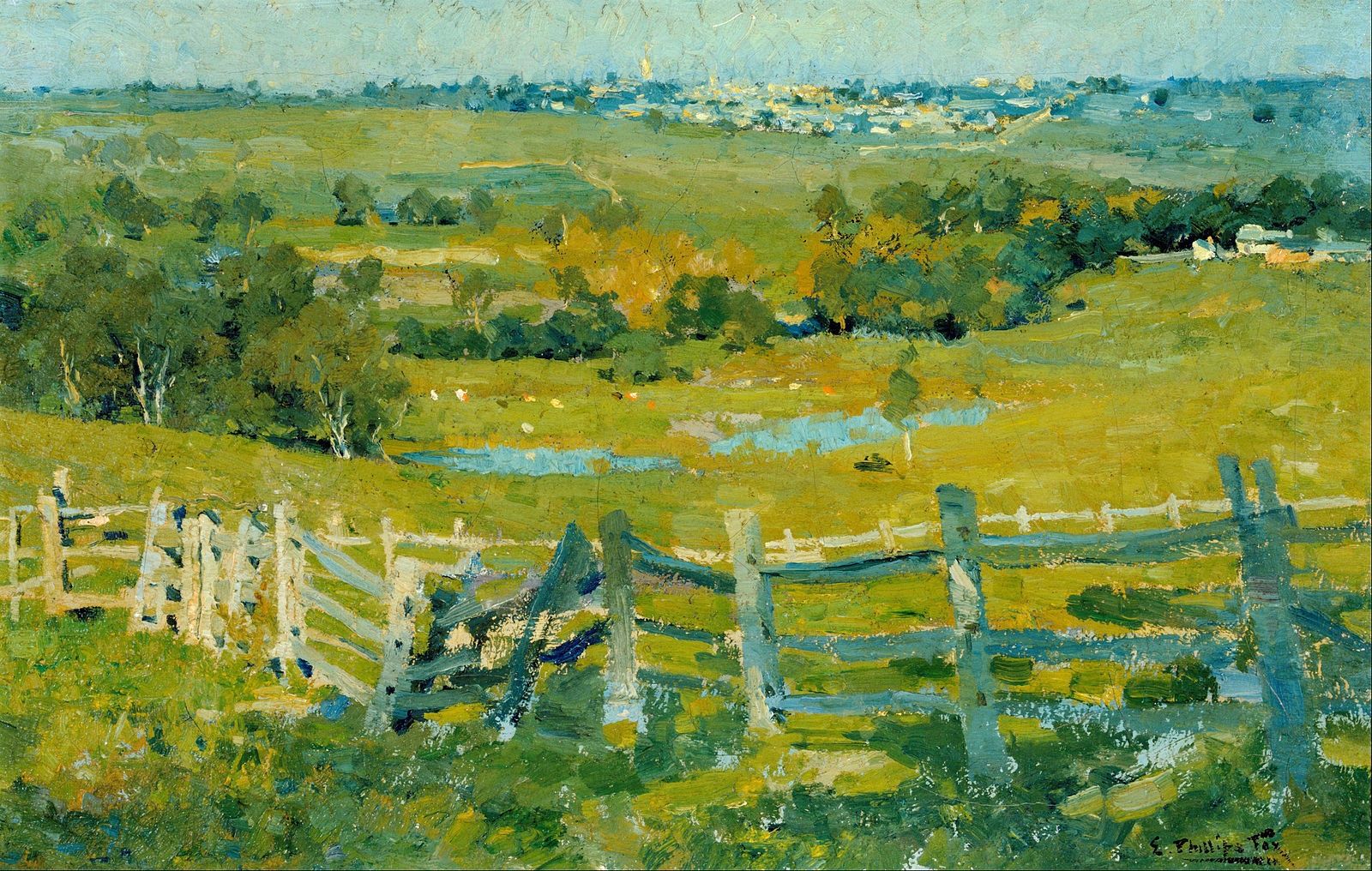
While living among those hills Streeton painted two of his most famous pictures, "Golden Summer" and "Still Glides the Stream."
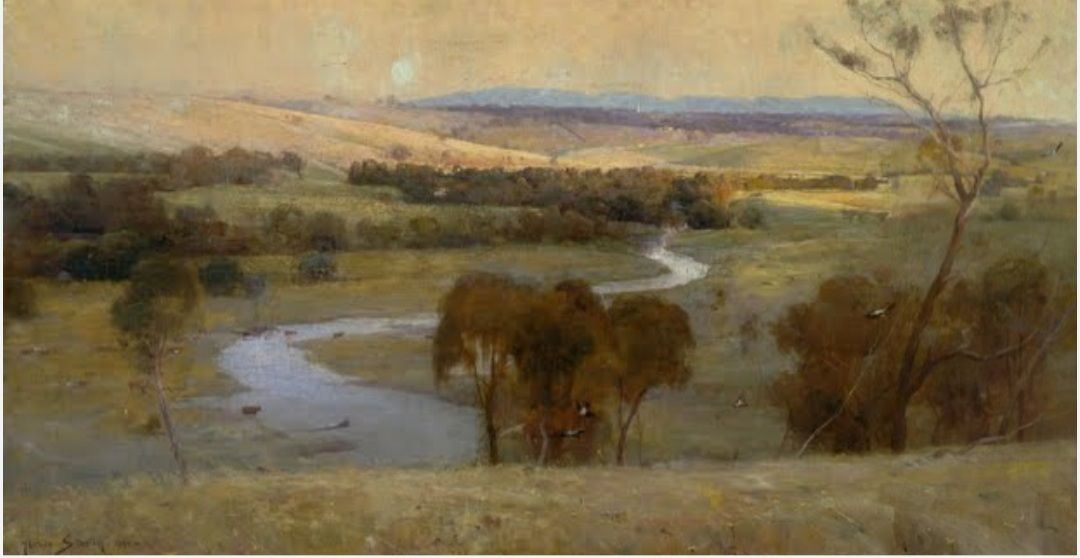
Buvelot's Wanderings
In a recent article Streeton referred to Mr. Louis Buvelot as having painted the first landscape in Victoria. It was called "A Summer Evening Near Templestowe." There are still residents who remember Buvelot wandering around the country between Heidelberg and Templestowe, and it is said that many a small picture was left as payment for board.
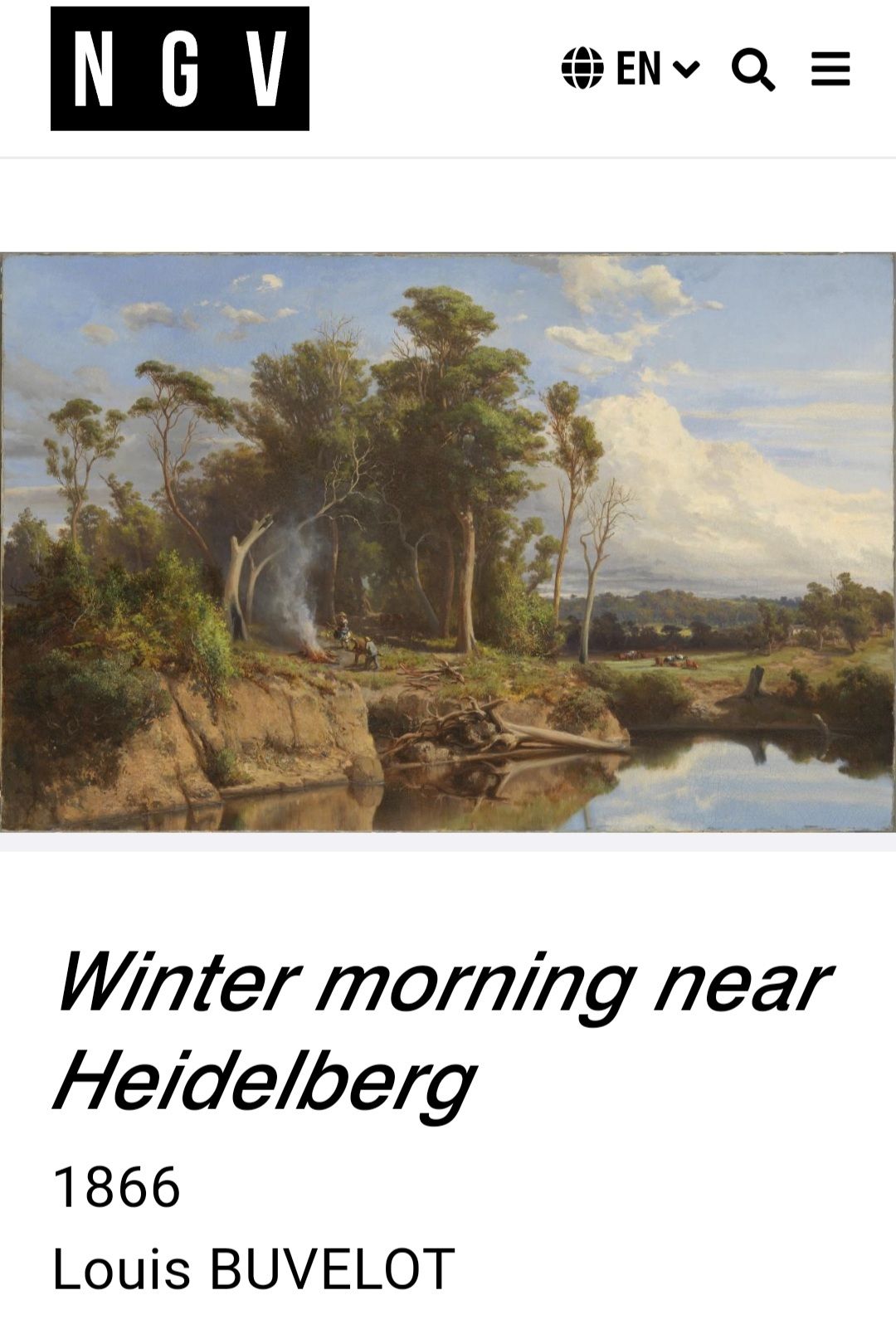
When it was decided to hold an exhibition in Heidelberg it was discovered that 20 well-known artists lived within the municipality. There is apparently a powerful attraction about the old spot.
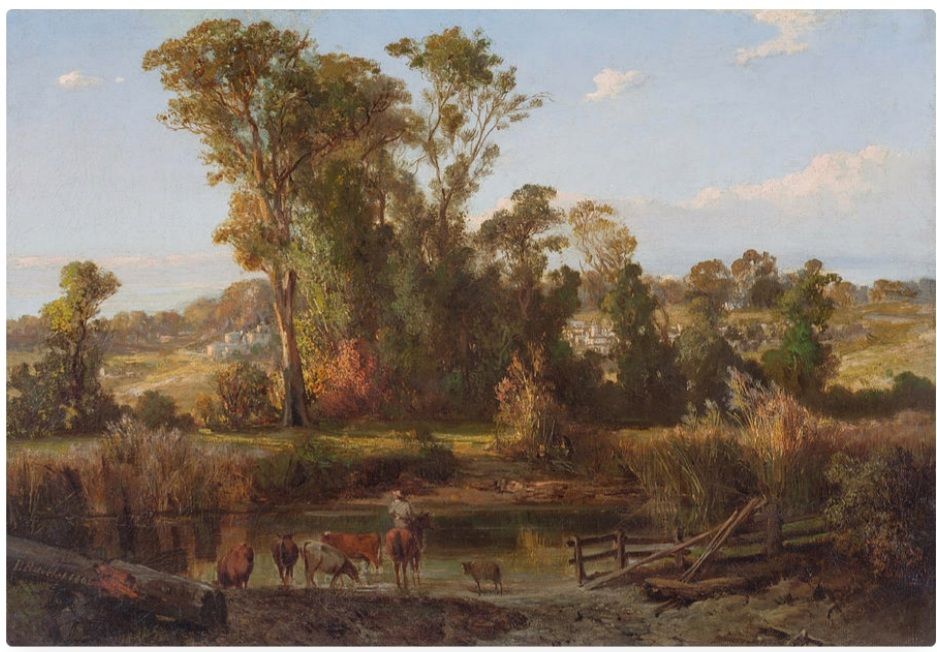
Member discussion